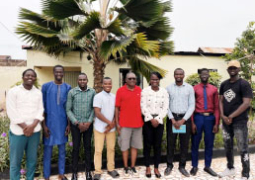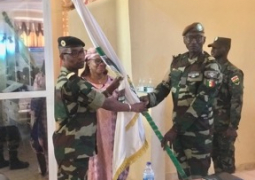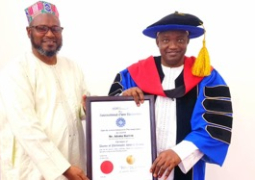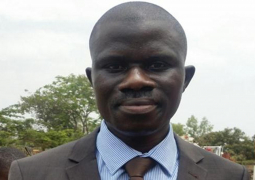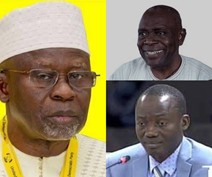
Three contenders remain in the race for the coveted position: veteran politician and party leader Ousainou Darboe, seasoned lawyer Borry Touray, and accountant Amadou Sanneh. The lineup shifted dramatically following the withdrawal of Banjul Mayor Talib Bensouda, who not only pulled out of the contest but also resigned from his post as the UDP National Organising Secretary. His decision has reshaped the dynamics of the contest, intensifying speculation about the direction the party will take as it seeks to consolidate its strength ahead of 2026.
The UDP’s journey to this moment is deeply rooted in the political history of The Gambia. The party was founded on 23 August 1996 during the turbulent early years of former president Yahya Jammeh’s military rule. At the time, established parties such as the People’s Progressive Party (PPP), the National Convention Party (NCP), and the Gambia People’s Party (GPP) had been banned from participating in elections. In response to this political vacuum, human rights lawyer Ousainou Darboe and a coalition of concerned citizens came together to form the UDP, just two weeks before the presidential election. Despite the odds stacked against it, the new party made an immediate impact by securing around 36 per cent of the vote, establishing itself as the main opposition force.
Since then, the UDP has remained a central player in Gambian politics. Under Darboe’s leadership, the party has contested successive elections against Jammeh, often under difficult and repressive conditions. In 2016, when Darboe was imprisoned for participating in a peaceful protest, the UDP joined the Coalition 2016 alliance that backed Adama Barrow, who went on to defeat Jammeh and ended 22 years of authoritarian rule. Following the coalition’s victory, the UDP initially aligned with Barrow’s government, but the relationship soured, leading to a political split that has defined the country’s current political landscape.
Today’s announcement therefore carries immense weight, not only for the UDP but for Gambian politics as a whole. If Darboe retains the flagbearer position, it will signal continuity and the party’s reliance on his decades of political experience and enduring grassroots support. If the mantle shifts to a new face such as Borry Touray or Amadou Sanneh, it could represent a generational transition and a new chapter in the party’s history, one that may seek to appeal to younger voters and broaden the UDP’s base ahead of 2026.
The stakes are high. For many Gambians, the UDP remains a symbol of resilience, having stood firm in the face of dictatorship and played a vital role in the restoration of democracy. Yet the party has also been under pressure to renew itself, adapt to the evolving political climate, and present a compelling alternative to the ruling National People’s Party of President Adama Barrow. The flagbearer announcement is therefore more than an internal party decision. It is a defining moment that will shape opposition politics, determine alliances, and set the tone for the national debate as the 2026 election approaches.
As the political spotlight turns to the UDP today, Gambians will be watching closely, aware that the outcome could alter the trajectory of the party and influence the balance of power in the country. Whether the choice falls on the tried and tested leadership of Ousainou Darboe or a new generation of leadership represented by Borry Touray or Amadou Sanneh, the decision marks a critical juncture for a party that has stood at the heart of The Gambia’s democratic struggle for nearly three decades.


